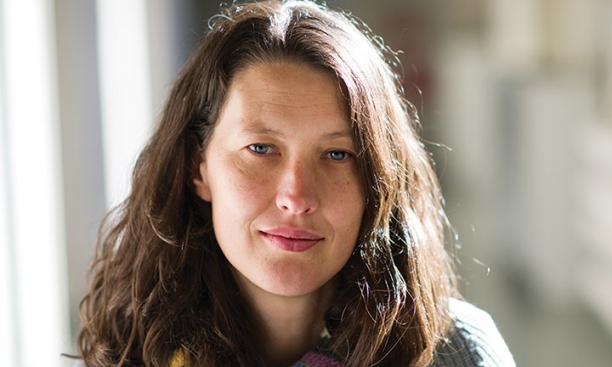
Jessica Metcalf studies how human behavior affects the dynamics of infectious diseases, with the goal of improving vaccination programs. An assistant professor of ecology and evolutionary biology with an appointment at the Woodrow Wilson School, Metcalf spoke to PAW about herd immunity, immunization, and the resurgence of preventable diseases.
What is herd immunity?
If a large portion of a population is immunized by an infection or vaccination, this protects others from becoming infected. As a disease spreads or as vaccination is distributed, more and more people are removed from the susceptible population because they can’t get infected again.
What are the public-health consequences?
“Children who live the farthest away from a population center had the lowest vaccine coverage.”
Professor Jessica Metcalf
Not everyone in a population needs to be immunized for an infection to no longer persist. For measles, in theory, about 93 percent of the population needs to be vaccinated for the disease to go extinct. But this theory relies on a lot of assumptions about vaccination coverage and people’s movements that may not be true in the real world. We’ve been working to better understand the actual patterns of vaccination across countries. We found that across a range of African countries, children who live the farthest away from a population center had the lowest vaccine coverage. This means that measles can continue to circulate in remote, rural areas, even if the target vaccination coverage of 93 percent is met in urban centers. Achieving high coverage in both these areas is essential to eliminating measles.
Measles was essentially eradicated in 2000, but in 2014 there were 664 cases in this country, and there have been other instances of resurgence of diseases for which we have vaccines. How can we rid the United States of these diseases again?
As long as you vaccinate kids, you can prevent the spread of this infection — the spread of measles is limited to susceptible people, and vaccination will protect them from infection for their entire lives. If you have an effective vaccination program, only a few kids are being born every year that aren’t vaccinated. It takes time to build up enough kids to have a sizable outbreak. We have almost eliminated measles, but to achieve and maintain elimination, we need to maintain coverage in every succeeding generation of children.
How are outbreaks controlled?
The Centers for Disease Control and Prevention (CDC) do an amazing job controlling outbreaks. Whenever there are cases, they track them down, do contact tracing, and vaccinate anyone who may have had contact with those infected. This stops the outbreak really fast. And measles vaccination coverage is extremely good in the United States, partly because of school-entry requirements, but also the response of the CDC is extremely intense, which is not the case in many other settings, including Europe. Interview conducted and condensed by Anna Azvolinsky *09
